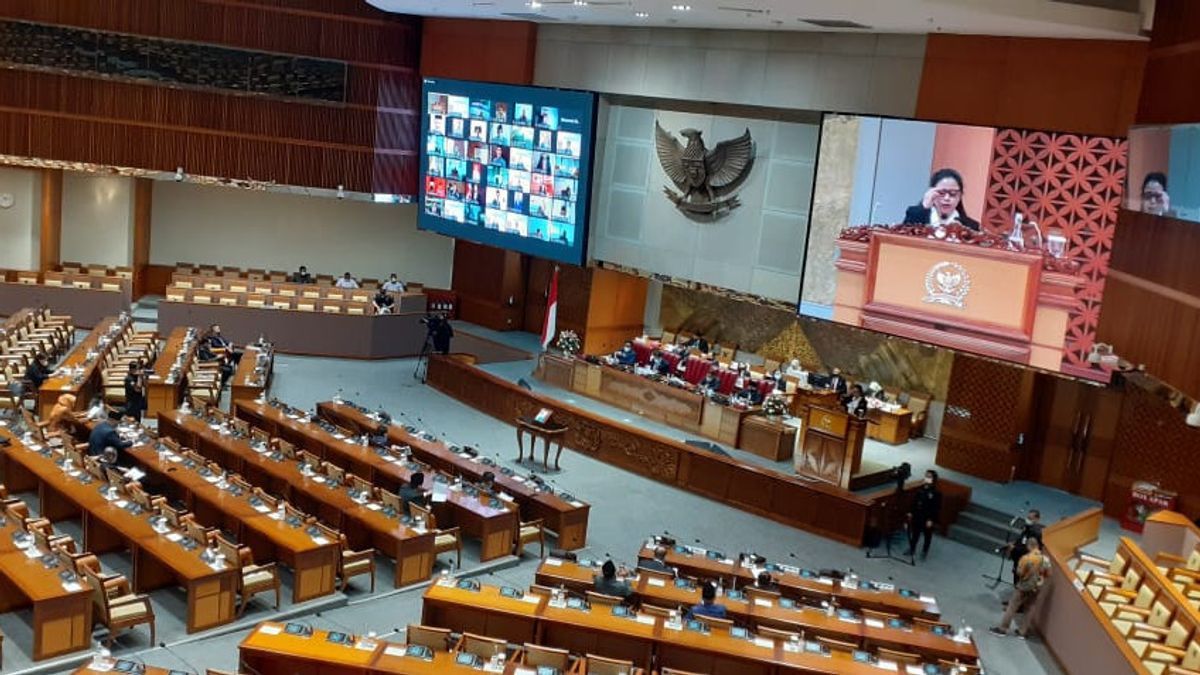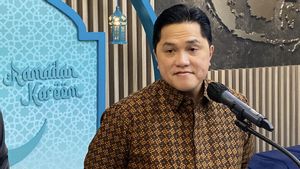JAKARTA - The House of Representatives (DPR) is expected to complete several legislative programs with a gender perspective after passing the Sexual Violence Law (UU TPKS).
According to the Center for Political Research, the National Research and Innovation Agency (PRP-BRIN), the legislative programs that must be completed include the Bill on the Protection of Domestic Helpers and the Bill on Justice and Gender Equality.
"I hope that with the context of the TPKS Law being issued, then the DPR is led by women and the Ministry of KPPA is active and synergizes with elements of civil society, this is a momentum to also hasten new policies with a gender perspective", said PRP-BRIN researcher, Aisah Putri Budiatri, Wednesday, April 20.
The TPKS Law is a collective work between the government, the DPR, and civil society groups. According to Aisah, the involvement of women's activists and observers also played a big role in drafting the law. Aisah assesses that this is the era of women's awakening.
"This is a good momentum that the DPR, the government can synergize with civil society for good things, for the public", said Aisah.
Through her research, Aisah explained, in the period 2004 to 2009 many women activists then collaborated with civil society groups for political will. Although in the legislature the portion of women members is relatively small, they gather other strengths.
“At that time the number was small, but at that time women's activists collaborated with civil society, women's groups. Ideas on what issues are important and what should be done. So they really have political intentions, political will", said Aisah.
Meanwhile, the Co-founder of the Hang Lekir Center for Strategic Studies, Maria Hamid, said that the public response to the ratification of the TPKS Law was very lively.
Therefore, according to her, neither the government nor the legislature should lose the moment. Maria said this is the time for the DPR and the government to work quickly to issue strategic policies.
Moreover, the TPKS Law itself has been stuck for almost seven years in the DPR. Only under the leadership of Puan as Chair of the DPR, as it passed into a Law.
A woman is sittingg as a policymaker, she marries the issue of freedom and women, women's issues and justice, making it discussed in the public sphere. It shows that women have bargaining power", said Maria.
SEE ALSO:
Maria emphasized that the presence of the TPKS Law broke the taboo in society to talk about 'problems in the household'. So far, she said, domestic violence, including sexual violence, was often kept under wraps because it was considered a disgrace and could be resolved on its own.
“Opening taboo barriers to be discussed openly and consensually. This law makes the private sphere public, which is a good thing. Because even if social norms change, there is already legislation", concluded Maria.
The English, Chinese, Japanese, Arabic, and French versions are automatically generated by the AI. So there may still be inaccuracies in translating, please always see Indonesian as our main language. (system supported by DigitalSiber.id)
















